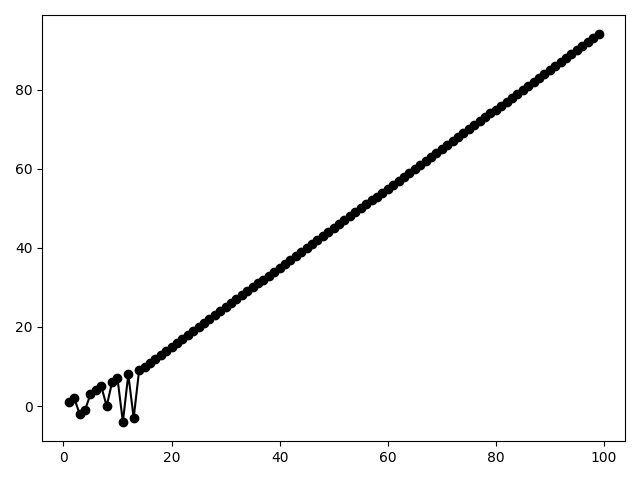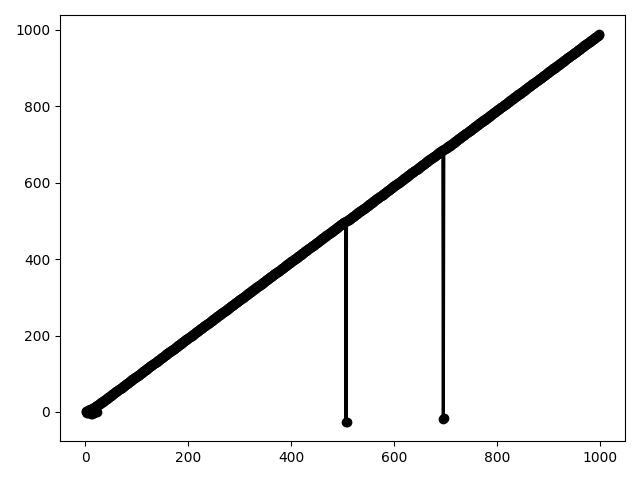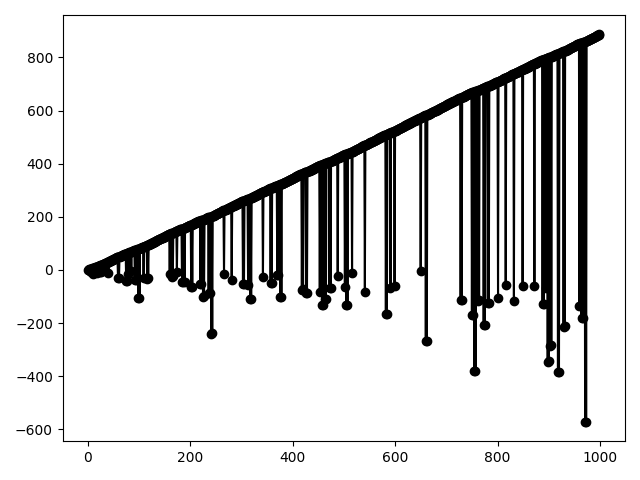Answer the question
In order to leave comments, you need to log in
A "new" approach to recursion?
The question arose in connection with the implementation of the well-known Hofstadter function in Python
using memoization. But you can start with the usual Fibonacci numbers.
Define:
F(n) = F(n-1) + F(n-2)
What is wrong with this definition? There are no initial conditions here!
It turns out that we start with an empty dictionary memo_dict = {}
And if we start with n = 1, then the first query F (n-1) will give an error KeyError.
Yes, but we have method overloading! Let's rewrite __missing__it so that when a request for a non-existent key does not throw an error, but it would be assigned a certain default value, say 1.
Thus, the first call to the function will require a forced addition to the dictionary {-1: 1, 0: 1}
Recursion will in a sense “dive into the unknown”, but then everything will continue naturally! The calculation of each new value will use the already created dictionary. The depth of "diving" into uncertainty will be equal to 2.
Now let's turn to QHofstadter
Q(n) = Q(n - Q(n-1)) + Q(n - Q(n-2))
Starting with an empty dictionary, n = 3 and default = 1, everything will happen the same as for Fibonacci: there will
be classical initial conditions {1: 1, 2: 1} and then everything is according to plan.
I'm very curious if there are any articles and studies about this approach to recursion?
The fact that it is not trivial can be easily seen on the example of the same QHofstadter.
Let's start with the dictionary {1:2, 2:1}. In the third step, the recursion will "dive" to the undefined key 0, but then it will again go forward on its own. Trying other, small integer initial values, we will see a wide variety of examples of "diving into the unknown":
{1: 5, 2: 6}

{1: 4, 2: 5}

{1: 8, 2: 3}

I would like to continue research, but perhaps this topic has long been disclosed.
I would appreciate any comments and links!
Answer the question
In order to leave comments, you need to log in
No, the approach is not "new".
The author, I will give advice on the presentation of large texts (not literary, but on the case).
Something painfully similar to the delirium of an inflamed consciousness.
In any, absolutely any recursive algorithm, there are conditions for the completion of the recursion, under which the algorithm returns a special statically predefined value.
But you can start with the usual Fibonacci numbers.
Didn't find what you were looking for?
Ask your questionAsk a Question
731 491 924 answers to any question